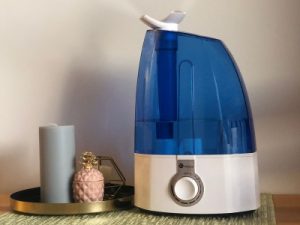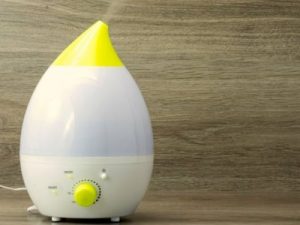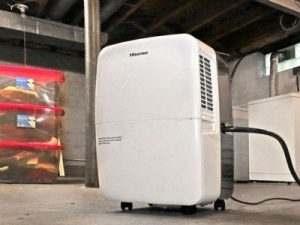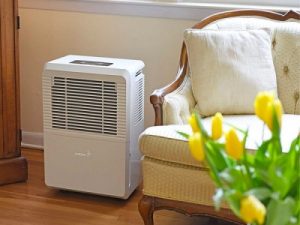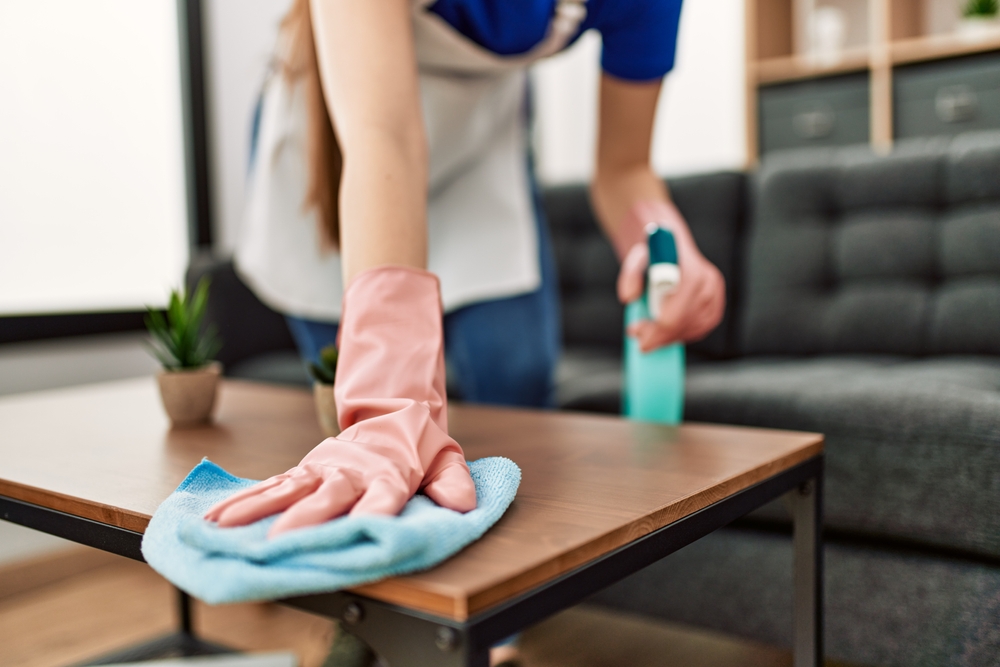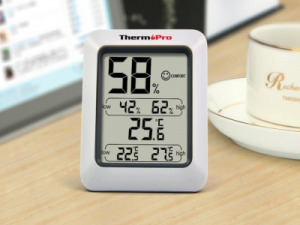The level of humidity in a house that serves as a home to acoustic instruments must be a bit different from the level of humidity in a house that doesn’t. Guitars, mandolins, pianos, and other kinds of string instruments should be kept within a particular humidity level to preserve and protect the instrument.
So, what humidity and temperature should be guitars kept at? A good humidity range is 45-55 percent RH, but you will be good with 40-60. You should keep a temperature of 70 to 75 degrees Fahrenheit.
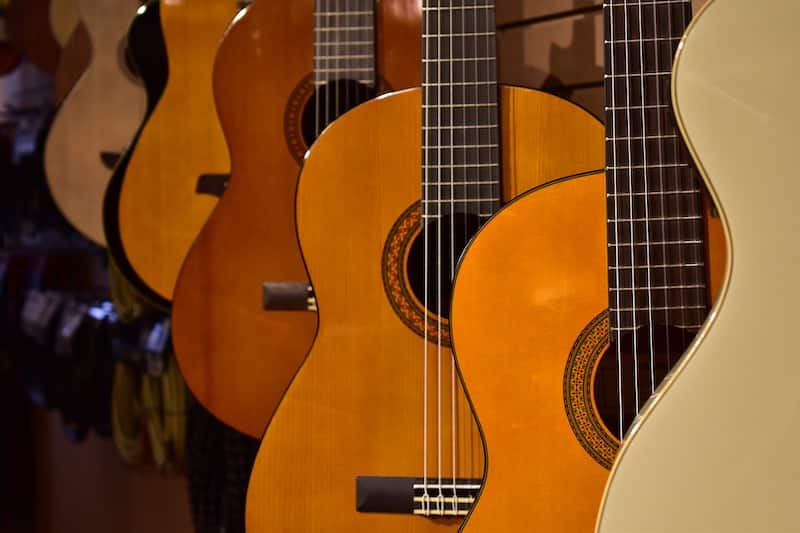
With most of these instruments being a bit expensive, it is a must to understand the specific humidity levels that you should maintain in your house. In order to keep an eye on humidity levels, you will need a device called hygrometer.
It doesn’t matter if you have one guitar or a hundred because every instrument is no doubt close to your heart. This is why it makes perfect sense that you look after your precious guitars in the best way possible.
For sure, you have already spent large amounts of cash on hard cases and gig bags. You may even be spending on fret cleaner and guitar polish for your guitars to stay safe and source. Of course, all of these things do a wonderful job. But, have you ever wondered about what temperatures could be doing to your instrument if you are not looking?
Extreme temperature changes and lack of humidification are the primary culprits behind guitar damage. This is also among the top issues that guitar techs need to deal with every time a customer brings a guitar that needs fixing to them.
Changes in humidity and temperature can both affect guitars particularly the higher end models. As you know, these are primarily made just made of wood pieces bolted or glued together.
The wood used might be of top quality but still, it is wood. So, similar to other pieces of wood, untreated or treated, changes in humidity and temperature will affect it because of the reality that wood contracts and expands with the heat and moisture levels of the particular atmosphere where they are placed. Having said this, a room’s temperature will have an effect on the amount of moisture that the air will be able to hold so it is a must to keep your guitars inside a properly controlled environment in the best way possible.
Conditions in different areas can change quickly temperatures rising and dropping quite unpredictably.
The constant weather changes can make your guitar dry out or even acquire excess water from the environment, particularly when you turn on your heaters or your house becomes damp because of the cold. Thus, it only makes sense for experts to strongly recommend to always store guitars inside its case if it is being used.
The case will serve as a buffer from the surrounding outside environment. Just as how you will be exposed to different temperatures even more if you don’t wear any clothes, your guitar can also get exposed to temperatures if you don’t put it in its case.
Experts also suggest that your instrument should remain within an environment that has a humidity of 40% to 50% since your guitar can perform much better when you keep it at this level of humidity. When the humidity level gets too high, it can make your guitar swell since it will be taking more water from the environment. On the other hand, if the level of humidity is too low, this can result in cracks forming on the wood when the air gets dry.
Aside from that, low and high temperatures can also take their toll on the guitar, as low temperatures can cause frets to shrink while high temperatures can warp the glue or melt the glue keeping the guitar together. Obviously, any of these is not ideal at all.
The best temperature for your guitar is anywhere around 21 to 24 degrees Celsius or 70 to 75 degrees Fahrenheit. Anywhere below or above these temperatures must be avoided at all cost for any long period of time.
How Do You Control Humidity on a Guitar?
A good way of keeping your guitar safe is to ensure that you do not expose it to any type of climate conditions that you wouldn’t want to be exposed to. You might not like to sit in a cold room without any particular clothes on for some days on end, right? It is the same way you would not like to sit in your car’s boot the whole day.
You have to keep in mind that guitars respond to their environments in the same way people would so keep them in environments that you’d consider comfortable. Just keep your guitar in its case whenever you’re not using it.
If you leave your guitar in its case in your van or car and brought it inside, it is a wise idea to leave your guitar in the case until the case cools down or warms up to room temperature because exposing it and opening it to warmer or cooler room can cause guitar some damages.
Your guitar will also require more time to get used to the surroundings. That is the reason why you will see some guitar technicians leave their guitars out of their cases at gigs before the show. This will help them with the tuning and keeping their guitars safe.





